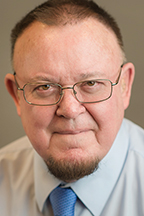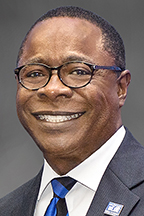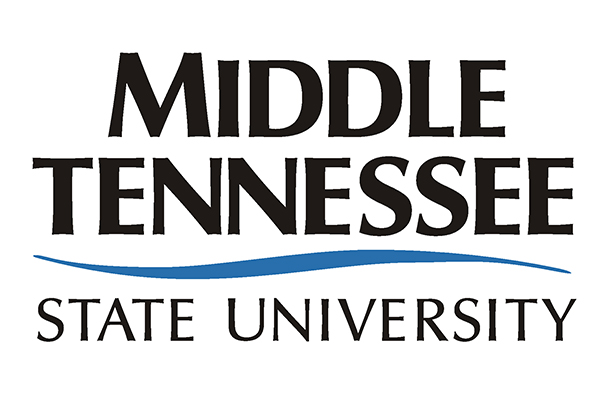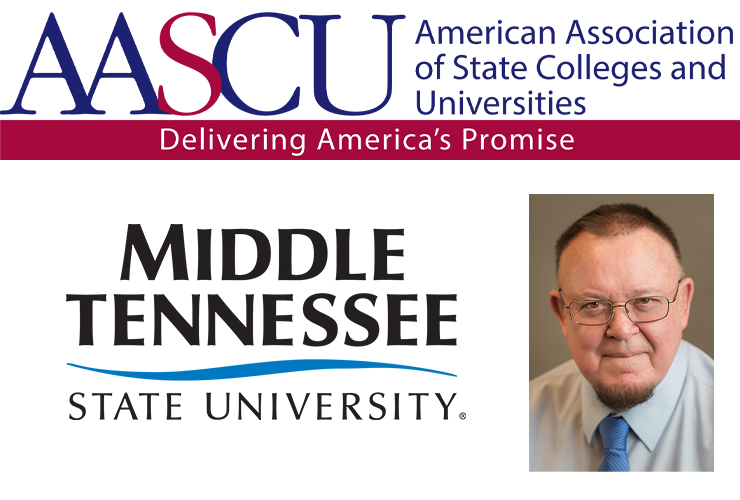WASHINGTON, D.C. — As a member of the American Association of State Colleges and Universities, Middle Tennessee State University is among 19 member institutions selected to execute a comprehensive multiyear initiative designed to help institutions close equity gaps for Black, Latinx, Indigenous, and low-income students.
The AASCU, a Washington, D.C.-based higher education association of nearly 400 public colleges, universities, and systems, is among six national and regional organizations selected by the Bill & Melinda Gates Foundation to participate in the effort.

In support of this initiative, AASCU has selected 19 institutions, including MTSU, to participate in the Student Success Equity Intensive, or SSEI (formerly the Transformation Accelerator Cohort). This is the second national cohort–selected through a highly competitive application.
Rick Sluder, MTSU’s vice provost for Student Success and dean of University College, said the university is fortunate “to be able to work with a cohort of like-minded institutions who are deeply committed to this work.”
“The incredibly generous support of the Gates Foundation allows us to work with leading providers and consultants, further focusing and intensifying efforts already underway as a part of Quest 2025,” Sluder said. “All of this is specifically designed to improve student outcomes, a decade-long commitment of MTSU President Sidney A. McPhee.”

Quest 2025 is a universitywide initiative that “focuses on student success marked by a deeper, broader, and more equitable academic and student life experience that extends learning beyond graduation.” It builds upon the Quest initiative launched in 2013 that focused on improving student retention and graduation rates.
AASCU President Mildred García said her organization is proud to be one of six recipients of funding from the Gates Foundation.
“The level of support is significant and means that AASCU member institutions will continue to lead the nation on postsecondary student success for America’s new majority at state colleges and universities,” García said. “For more than 50 years, AASCU has partnered with member institutions to deliver on America’s promise of access, affordability, and educational opportunity. The Student Success Equity Intensive articulates an equity imperative to help everyone see their role in ensuring success for Black, Latinx, Indigenous, and low-income students.”

AASCU institutions serve as engines of opportunity for social and economic mobility, and “this investment recognizes that AASCU is a national leader in the effort to scale student success,” added Terry Brown, AASCU’s vice president of Academic Innovation and Transformation.
Other participating institutions include California State University, Stanislaus; Fort Lewis College, Colorado; Georgia College and State University; Lehman College; The City University of New York; Nevada State College; Portland State University, Oregon; Sam Houston State University, Texas; Tarleton State University, Texas; Texas A&M International University; Texas A&M University; Texas A&M University-Central Texas; Texas A&M University-Commerce; Texas A&M University-Texarkana; University of Guam; University of North Georgia; University of Washington Bothell; West Texas A&M University; and Western Kentucky University.
Among the participants representing rural, urban, and suburban areas across the country, 11 are Hispanic-serving institutions and Asian American and Native American Pacific Islander-serving institutions.
The selected institutions serve 228,843 students, with an average Pell eligibility of 42%.

The comprehensive, team-based learning journey accelerates institutional transformation by providing customized support for making data-informed decisions grounded in students’ realities. Campus leaders will work as a cohort and learn promising practices to close equity gaps and achieve student success goals for Black, Latinx, Indigenous, and low-income students to ensure that race and income are no longer predictors of success.
The SSEI cohort approach involves peer-to-peer learning across institutions via in-person and virtual Student Success Academies. Participants will have access to resources, such as online modules and webinars, and receive support from subject matter experts in data analytics, equity, student success, advising, institutional transformation, and strategic and systems planning.
Each institution must assemble a team of key campus leaders. President engagement is an integral component to the model to promote sustainable transformation.
The Student Success Equity Initiative is an important part of a robust array of programs and services that AASCU offers to help its members achieve student success goals. The end-to-end guided learning experience empowers participating institutions to meet the unique needs of current and future students.
About AASCU
The American Association of State Colleges and Universities (AASCU) is a Washington, D.C.-based higher education association of nearly 400 public colleges, universities, and systems whose members share a learning- and teaching-centered culture, a historic commitment to underserved student populations, and a dedication to research and creativity that advances their regions’ economic progress and cultural development. These are institutions Delivering America’s Promise.
— Jimmy Hart (Jimmy.Hart@mtsu.edu)


COMMENTS ARE OFF THIS POST